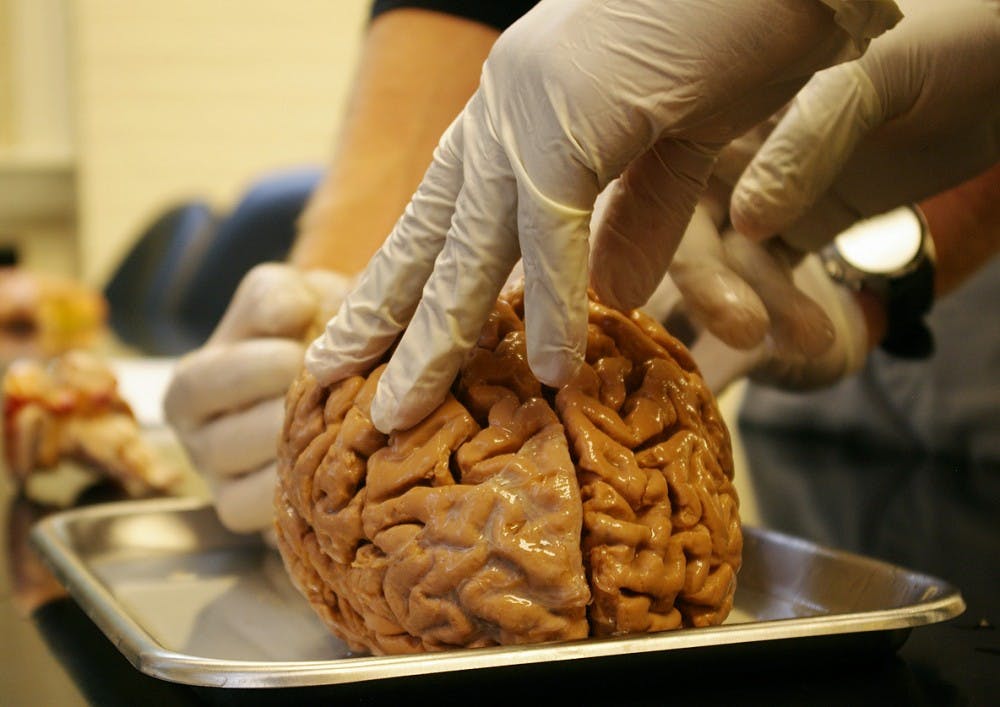Professor Kelly Giovanello from UNC’s College of Arts & Sciences is working to better identify the signs of Alzheimer’s in individuals long before they show symptoms.
Giovanello is a professor in the Department of Psychology and Neuroscience and the first director for the neuroscience major curriculum, a major which was made available to students for the first time in 2018.
Giovanello has always been interested in the relationship between the brain and memory and worked with amnesia patients while she was in college. Now, she uses MRI imaging to examine the brain and look for signs of the disease in patients that could help diagnose someone before the symptoms for Alzheimer's become apparent.
“We know now that the pathology for Alzheimer’s starts to build 20 years before the patient actually goes to the doctor's office or says, ‘Gee I’m having a real problem with my memory,’” Giovanello said. “My line of research is looking for what we call a biomarker, so while somebody is still alive, are there brain signals that tells us that a decade from now they are going to go on and develop that pathology?”
The biggest hallmark of Alzheimer’s is suffering of a specific type of memory loss known as declarative memory. This is the type of memory people use to remember their everyday lives, like what they did yesterday or last week.
“Declarative memory is memory for day-to-day events, so if I asked you what you had for dinner last night, you would have to mentally time travel back in your mind and think about where you ate, who you ate with, what the conversation was," Giovanello said. “Those are all pieces of an event that there’s a brain region that I study called the hippocampus that kind of links or binds all of that information together.”
Stephanie Langella is a doctorate student at UNC who works in Giovanello’s lab. She said the ultimate purpose of their research in identifying those who show the potential of Alzheimer’s development is to then intervene with treatment before the disease fully develops.
"We don’t have any treatments right now for Alzheimer’s disease, and so really the work that we are trying to do is to be able to identify people pre-clinically, so before they have any clinical symptoms and cognitive changes,” Langella said.
Although Giovanello said she is excited about the research she is currently doing and how it could potentially combat Alzheimer's in the future, she is equally excited about the budding Psychology and Neuroscience Department at UNC. Giovanello said students’ interest in neuroscience has increased dramatically in recent years.




